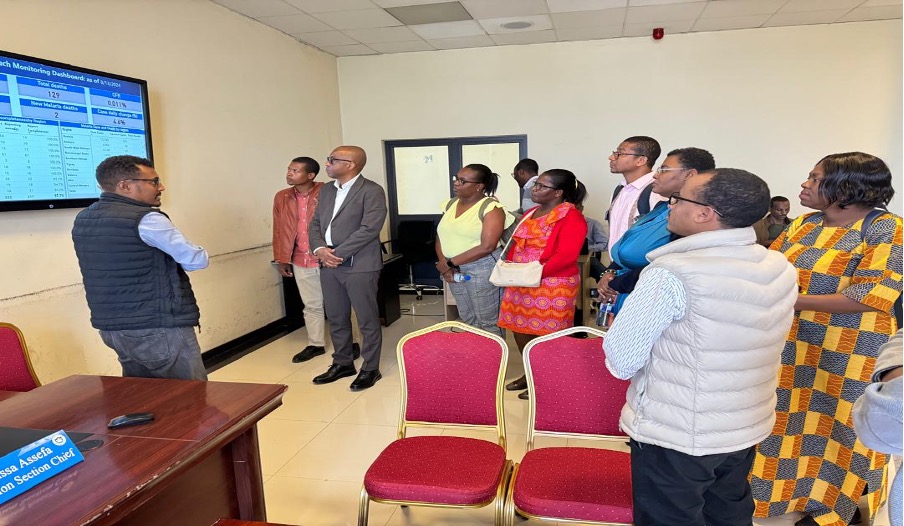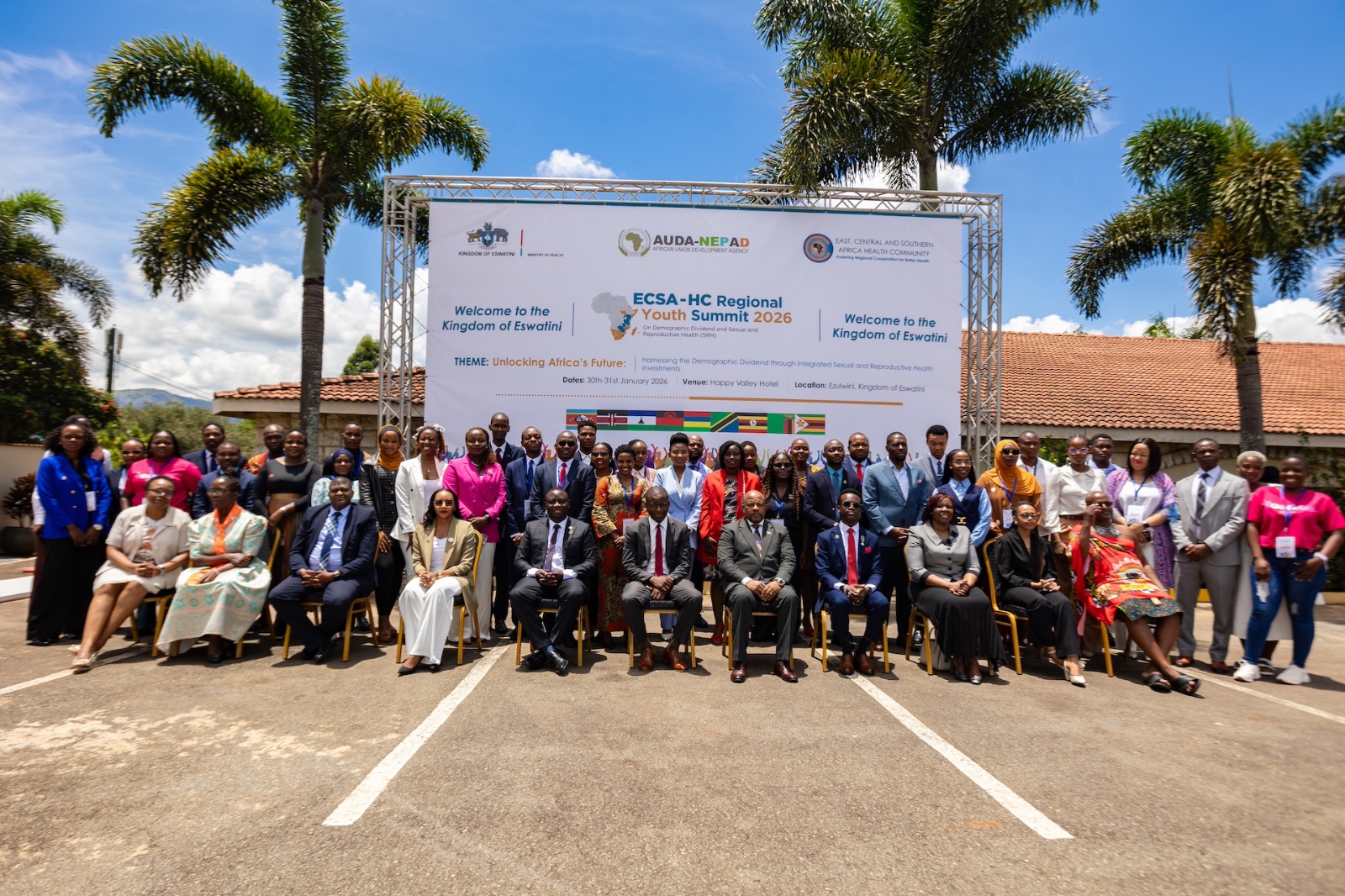ECSA-HC has successfully concluded the 76th Health Ministers Conference (3–5 Feb 2026) in Ezulwini, Kingdom…
PHEOC/IMS Training in São Tomé and Príncipe: Building Resilience in Public Health Emergency Preparedness

São Tomé and Príncipe marked a significant milestone in strengthening its public health emergency response with a comprehensive training on the Public Health Emergency Operations Center (PHEOC) and the Incident Management System (IMS) held from August 19 to 23, 2024. Organized by the East, Central, and Southern Africa Health Community (ECSA-HC) and the World Health Organization (WHO), in collaboration with São Tomé and Príncipe’s Ministry of Health, this event underscored the country’s commitment to enhancing its capacity to manage public health crises effectively.
This five-day training aimed to address crucial gaps in São Tomé and Príncipe’s emergency response framework, particularly in the PHEOC and IMS systems. The focus was on equipping 30 participants from key departments—ranging from epidemiology and surveillance to hospitals and laboratories—with the knowledge and skills necessary to efficiently manage public health emergencies. The training was part of the larger Health Emergency Preparedness Response and Resilience Multi-Phased Programmatic Approach (HEPRR-MPA), an initiative spearheaded by ECSA-HC to enhance public health response systems across the region.
Participants were carefully selected from pivotal sectors within São Tomé and Príncipe’s Ministry of Health to ensure the training reached those who are directly involved in emergency preparedness and response. This included professionals from the PHEOC, National Reference Laboratories, and key hospitals. The rationale behind targeting these groups was to build an interdisciplinary team capable of managing health emergencies across all levels—from detection to response and recovery.
The training program covered six core modules, translated into Portuguese for accessibility, ranging from the foundational principles of PHEOC to practical simulations of emergency scenarios. The structured learning modules provided participants with a solid understanding of emergency management frameworks, including how to operate PHEOCs, the role of multi-sectoral coordination, and the implementation of IMS during public health crises.
Learning was highly interactive, with group discussions, plenary sessions, and hands-on simulation exercises. This approach allowed participants to apply theoretical knowledge to practical scenarios, fostering confidence in their ability to respond to real-world public health emergencies. Notably, participants also benefitted from an experience-sharing tour at the Ethiopian Public Health Institute (EPHI) and Africa CDC, where they gained insight into how other countries manage similar health crises.
By the conclusion of the training, participants had acquired a clear understanding of their roles and responsibilities within the PHEOC and IMS frameworks, strengthening their ability to manage public health emergencies. One of the immediate outcomes was the development of a national PHEOC Handbook, which will serve as a guiding document for emergency preparedness and response in São Tomé and Príncipe. The training also emphasized the importance of multi-sectoral coordination, ensuring that government agencies, healthcare facilities, and international partners work in harmony during emergencies.
This training not only filled knowledge gaps but also provided São Tomé and Príncipe with a strong foundation for building more resilient public health systems. The skills acquired by participants will directly contribute to the country’s ability to respond swiftly and effectively to future health emergencies, aligning with broader regional efforts to enhance public health resilience.
São Tomé and Príncipe’s PHEOC/IMS training is a key component of the broader HEPRR-MPA initiative, which aims to strengthen public health emergency management across the East and Southern Africa region. The success of this training serves as an example for other nations striving to improve their emergency preparedness systems and underscores the importance of regional collaboration. By addressing existing gaps and building local capacity, São Tomé and Príncipe is better equipped to manage not only its own public health challenges but also to contribute to regional efforts in mitigating global health crises.
This training marks a significant achievement for São Tomé and Príncipe and represents a crucial step in the country’s journey toward establishing a robust public health infrastructure. Through ongoing collaboration with ECSA-HC and WHO, São Tomé and Príncipe is positioning itself as a leader in public health preparedness, setting a strong precedent for other countries in the region to follow.


